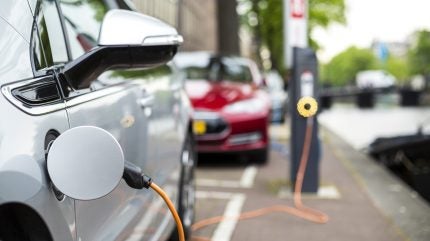
The UK government has announced that the country’s electric vehicle (EV) infrastructure has received a significant boost with the addition of 17,370 new chargepoints over the past year, marking a 27% increase in the network.
Future of Roads Minister Lilian Greenwood confirmed this rapid expansion, particularly noting advancements in the north-east, East of England, and the West Midlands, ensuring drivers have access to public chargepoints within a short drive.

Discover B2B Marketing That Performs
Combine business intelligence and editorial excellence to reach engaged professionals across 36 leading media platforms.
The surge in chargepoint installations comes alongside the government’s announcement of discounts up to £3,750 for new EVs.
This incentive is coupled with a £25m investment to facilitate home charging, potentially saving drivers up to £1,500 annually when they switch to electric.
The discount scheme is now open to manufacturers and will be available until the 2028 to 2029 financial year.
The UK government’s commitment to EV adoption includes a £4.5bn investment to reduce the costs and simplify the ownership of EVs.
This investment also aims to support British car manufacturers, generate jobs, and drive investment as part of the “Plan for Change”.
Future of Roads Minister, Lilian Greenwood, said: “Just last week, we announced record discounts to help make EV ownership a reality for thousands more people, alongside making it easier to charge at home so more drivers can run their EV for as little as 2p a mile – that’s London to Birmingham for £2.50.
“Today’s chargepoint figures show that alongside lowering upfront costs, we’re also making fantastic progress towards expanding our charging network across the UK.”
The strategy aligns with the government’s efforts to support drivers, which include investing £1.6bn in road maintenance and extending the 5p fuel duty freeze until spring 2026, saving motorists an average of £50 to £60 per year.
Earlier in the month, the DRIVE35 programme was launched by the government, which is a £2.5bn ($3.37bn) initiative designed to accelerate the UK automotive sector’s transition to zero-emission vehicle production.






